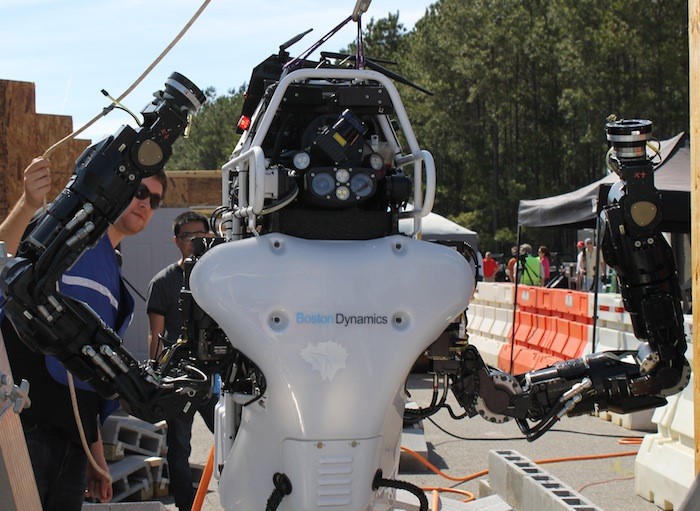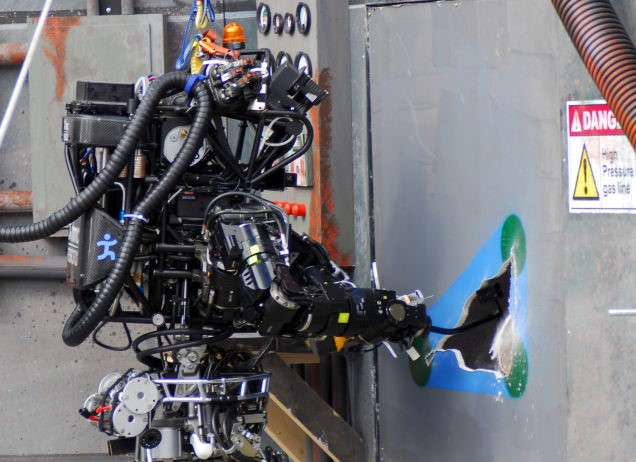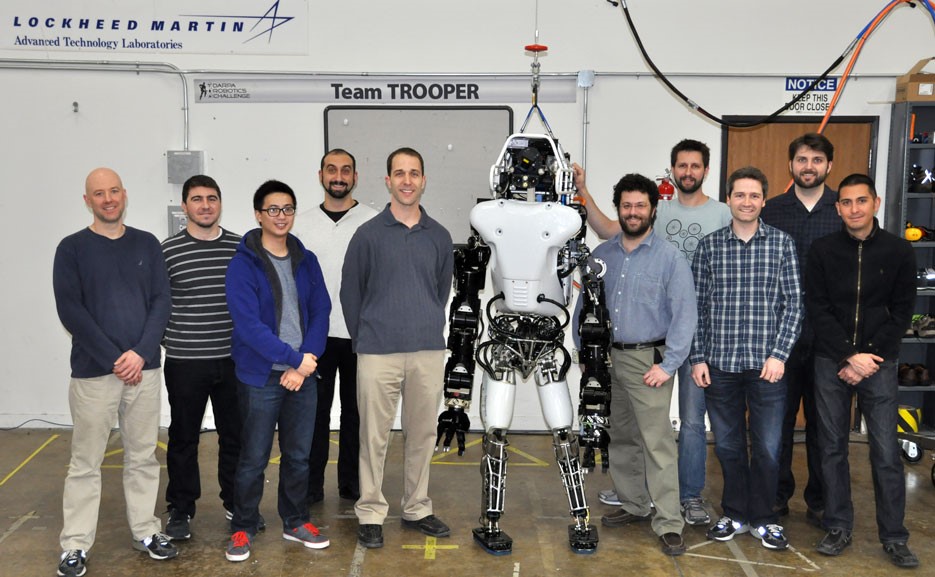
This weekend, one of the most highly anticipated DARPA Robotic Challenge (DRC) will reach its conclusion as the 25 finalists strut their actuators across a simulated disaster-response circuit in Pomona, California, completing for $3.5 million in prize money.
DRC is an international competition that brings together robot system and software experts from academia, industry, and government, as they show-case the robots they’ve developed specially for assisting humans in natural and man-made disaster response. Pitting the robots against one another in a simulated disaster zone, the contest requires that they to complete difficult physical tasks without a comm-link to the operator; meaning, the robots are completely untethered. There are no cables to provide a power or data or prevent them from falling.

This year’s DRC roster is larger than ever before, with 14 news teams from seven countries joining the 11 teams that previously qualified during the DRC Trial. DARPA is awarding the winning team with a sizeable $2 million grand prize; another $1 million allotted to the runner-up and $500,000 to the third place team.
Gill Pratt, the program manager for the DRC, explains that the tasks required for the final challenge consolidates everything that occurred during that the trials, but in this case, the teams have a single hour to complete the mission.
The trial includes: Driving a vehicle to the simulated disaster building, opening the doors, walking on rubble, and using tools to complete some task before finally climbing up stairs where a surprise task awaits, which Pratt could not obviously reveal.
The event is far more than a competition, but a testing ground for all the latest state-of-the-art technology in the cross fields of robots and search-and-rescue.
 Pictured above: Lockheed Martin’s Team Trooper with their DARPA-furnished Atlas robot equipped with a new Human Guide Autonomy software. Atlas serves as a foundation for many of the teams' designs.
Pictured above: Lockheed Martin’s Team Trooper with their DARPA-furnished Atlas robot equipped with a new Human Guide Autonomy software. Atlas serves as a foundation for many of the teams' designs.
The 25 teams are:
Germany
• Team Hector (Technische Unversitat Darmstadt, Darmstadt)
• Team NimbRo (University of Bonn, Bonn)
Hong Kong
• Team HKU (Hong Kong University, Hong Kong; Case Western Reserve University, Cleveland)
Italy
• Team Walk-Man (Istituto Italiano di Tecnologia, Genoa; University of Pisa, Pisa)
Japan
• Team Aero (University of Tokyo, Tokyo)
• Team AIST-NEDO (National Institute of Advanced Industrial Science and Technology, Tokyo)
• Team HRP2-Tokyo (University of Tokyo, Tokyo)
• Team NEDO-JSK (University of Tokyo, Tokyo)
• Team NEDO-Hydra (University of Tokyo, Tokyo; Chiba Institute of Technology, Chiba; Osaka University, Osaka; Kobe University, Kobe)
China
• Team Intelligent Pioneer (Hefei Institutes of Physical Science, Chinese Academy of Sciences, Changzhou)
South Korea
• Team ROBOTIS (ROBOTIS, Seoul)
• Team SNU (Seoul National University, Seoul)
• Team KAIST (Korea Advanced Institute of Science and Technology, Daejeon, South Korea)
United States
• Team DRC-Hubo (University of Las Vegas, Las Vegas)
• Team Grit (Grit Robotics, Grand Junction, Colo.; Colorado Mesa University, Grand Junction, Colo.; AutonomouStuff, LLC, Morton, Ill.; Harbrick, Moscow, Idaho)
• Tartan Rescue (Carnegie Mellon University, National Robotics Engineering Center, Pittsburgh)
• Team IHMC Robotics (Florida Institute for Human & Machine Cognition, Pensacola, Fla.)
• Team MIT (Massachusetts Institute of Technology, Cambridge, Mass.)
• Team RoboSimian (NASA Jet Propulsion Laboratory, Pasadena, Calif.)
• Team THOR (University of California, Los Angeles, Los Angeles; University of Pennsylvania
• Team TRACLabs (TRACLabs, Inc., Webster, Texas)
• Team Trooper (Lockheed Martin Advanced Technology Laboratories, Cherry Hill, N.J.)
• Team Valor (Virginia Tech, Blacksburg, Va.)
• Team ViGIR (TORC Robotics, Blacksburg, Va.; TU Darmstadt, Germany; Virginia Tech, Blacksburg, Va.; Oregon State University, Corvallis, Ore.; Cornell University, Ithaca, N.Y.; Leibniz University Hanover, Germany)
• Team WPI-CMU (formerly Team WRECS – Worcester Polytechnic Institute, Worcester, Mass.)
Source: IEEE, theroboticschallenge.org
Advertisement
Learn more about Electronic Products Magazine





